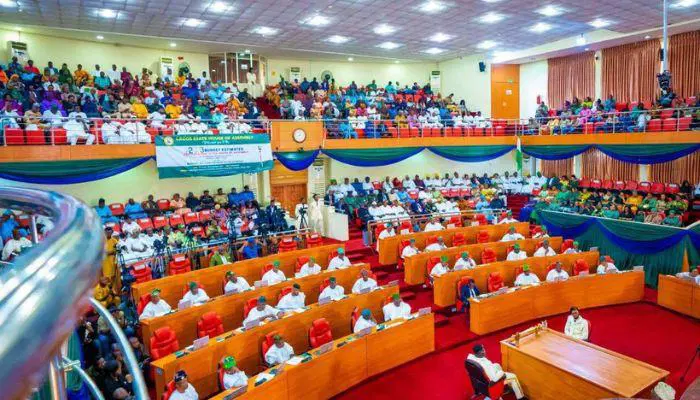The Lagos State House of Assembly found itself embroiled in a legal tussle with the state’s executive arm over the implementation date of the newly enacted Local Government Administration Law 2025. The law, signed by Governor Babajide Sanwo-Olu in May 2025, provides a framework for the tenure, succession, and disqualification of local government chairmen and vice chairmen. A key provision stipulates that a vice chairman who assumes the chairmanship due to death, resignation, or defection of the incumbent is deemed to have served a full term, regardless of the time spent in office. This provision became the crux of the ensuing controversy.
The dispute ignited when the Solicitor General’s office issued a letter stating that the law, despite receiving gubernatorial assent in May, would only become effective on August 4, 2025, through a “Commencement Order.” This order, the letter explained, was linked to the recently concluded All Progressives Congress local government primary elections. The House of Assembly vehemently contested this assertion, arguing that an executive order could not supersede a law already signed into effect. They viewed the executive’s attempt to delay the implementation as an encroachment on legislative authority and a potential disruption to the smooth operation of local governance.
Members of the House expressed strong disapproval of the executive order, emphasizing that the law, having been diligently crafted and subsequently assented to, represented the will of the people and could not be arbitrarily altered. Sanni Babatunde, Chairman of the Committee on Local Government Administration, Chieftaincy Affairs, and Rural Development, underscored that any attempt to modify the law would undermine the legislative process. Oladipo Ajomale, Chairman of the Judiciary, Human Rights, Public Petitions, and LASIEC Committee, expressed his astonishment at the executive’s action, questioning the sudden change of course after the law had already been publicly acknowledged. The consensus among the lawmakers was that the executive’s order was an overreach of power and a disregard for established legal procedures.
Speaker Mudashiru Obasa, viewing the situation as a test of the law’s strength and validity, summoned Attorney General Lawal Pedro (SAN) and Solicitor General Oyenuga Olanrewaju to appear before a joint committee to clarify the executive’s stance. Obasa emphasized that the legislative process culminates with the governor’s assent, and any refusal to assent would necessitate the law’s return to the Assembly for further deliberation. He saw this conflict as an opportunity to examine the robustness of the legislative process and ensure adherence to democratic principles.
Concurrent with the controversy surrounding the implementation date, the House received a letter from the Otto-Awori Local Government concerning the swearing-in of Abdulkareem Abioun as the substantive Executive Chairman following the death of the previous chairman, Prince Musibau Ashafa. The letter highlighted the legal provision mandating the vice chairman’s ascension to the chairmanship in such circumstances. However, it also noted that the vice chairman would be addressed as “acting chairman,” a designation that raised concerns about compliance with the rule of law at the local government level. The Otto-Awori Local Government requested the Assembly’s intervention to ensure Abioun’s proper swearing-in as chairman to prevent any potential breakdown of law and order.
In response to the Otto-Awori situation, Speaker Obasa directed the Clerk to formally notify the Governor of the development. Furthermore, he summoned Abioun, the Council Manager, and legal officers to appear before the House Committee on Local Government and Chieftaincy Affairs to address the issue and ensure adherence to the established legal framework. This dual challenge—the dispute over the implementation date of the Local Government Administration Law and the ambiguity surrounding the swearing-in of the Otto-Awori chairman—underscored the importance of clear legal processes and respect for the separation of powers within the Lagos State government. The House of Assembly’s decisive actions demonstrated their commitment to upholding the rule of law and ensuring the smooth functioning of local governance.


